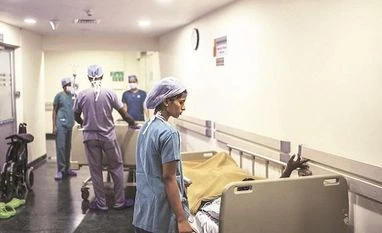The Kerala High on Tuesday directed the Karnataka government to permit entry from here to that state of people in dire emergent situations, like death in the family or medical treatment, on the production of necessary documents in support of their respective claims and irrespective of the nature of vehicles used by them.
A vacation bench of Justices Shaji P Chaly and A Badharudeen issued the direction while hearing two PILs, one by A K M Ashraf the IUML MLA from Manjeshwar, which have opposed Karnataka government's decision to blockade borders of Kasargod and Mangalore, within that state. The petitioners have contended that this has resulted in people from Kerala being unable to enter Karnataka for any emergent situations and therefore, it was totally illegal and violative of the fundamental rights of citizens. Ashraf also told the bench that people of Manjeshwar are dependent on Dakshin Kannada district/Mangalore city for their basic needs and they also rely entirely upon the medical facilities there and its adjacent areas, since it is the nearest medical hub available. The blockade was also causing disruption in trade, supply of food and other essential items and was interfering with the rights of the citizens to move freely throughout the territory of India, the two PILs claimed. Karnataka government's lawyer opposed the reliefs sought in the pleas saying that a fresh circular regulating entry of people from Kerala was issued recently in view of the pandemic situation and high number of COVID-19 patients here. He said the circular of July 31 also addresses the entry concerns of people with emergent cases, students and daily visitors to Karnataka by incorporating suitable conditions. The lawyer also said that the Karnataka High Court on Tuesday directed the Karnataka government to strictly implement the July 31 circular and therefore, if at this stage of the proceedings, any directions are issued by the Kerala High Court there could be a conflict in the orders by the two courts. He further said that since the blockade under challenge was created by Karnataka the High Court there would have the territorial jurisdiction to deal with the issue. He also sought time till August 25 to file a response to the two pleas. The petitioners said it would suffice for now if an interim direction is issued till August 25 permitting entry into Karnataka of people in emergent medical need or in case of death in the family irrespective of the vehicle used by them. The bench, after perusing the circular, said that one of its paragraphs makes it clear that certain categories of people are exempted which includes students and public visiting Karnataka daily for education, business and other reasons, on certain conditions. "That apart, certain categories are exempted from negative RTPCR certificate and they include constitutional functionaries and health care professionals, children below two years and the emergent situations like death in the family, medical treatment, etc, after undergoing the protocol prescribed thereunder," the court said. It further said that in view of the circular and the submission of the petitioners, "we think it is only appropriate that necessary directions are issued to the state of Karnataka to ensure that the situation taken care of in the revised circular dated July 31 is strictly implemented so as to avoid any inconvenience to the people of Kerala and thus avoiding complex situations as pointed out by the petitioners". The bench, thereafter, directed Karnataka government and its officials to ensure that the directions contained in the circular dated July 31 is strictly implemented and that the people in dire emergent situations like death in the family, medical treatment etc, "are permitted to enter the state of Karnataka on production of necessary documents to establish the respective case, irrespective of the nature of the vehicles used for the purpose". With the direction, the court listed the two matters for further hearing on August 25.
(Only the headline and picture of this report may have been reworked by the Business Standard staff; the rest of the content is auto-generated from a syndicated feed.)
)